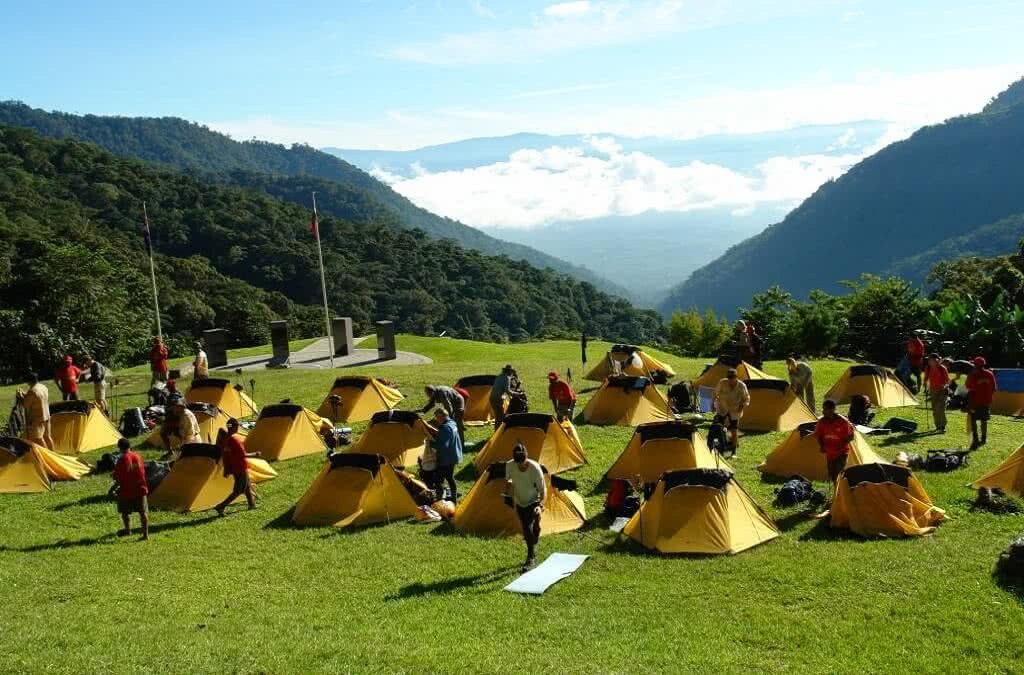The Review of the Kokoda Track Authority (KTA) ordered by PNG Prime Minister, Peter O’Neill, resulted in a bureaucratic desk-top study which recommends more of the same under a different name.
Prime Minister O’Neill ordered the review after the collapse of the management system put in place by the Australian Government in 2009.
Despite spending more than $50 million since then Kokoda trekker numbers have declined by 46%; there is not a single management protocol in place; not one of the five key strategies or 33 objectives established by Australian managers for the period 2012-2015 was achieved; and there is still no master plan to protect and interpret our shared wartime history of the Kokoda campaign.
Australian officials were able to cover their taxpayer funded follies for a number of years but they now seem to have run out of academic subjects for consultants to address in regard to climate change, social mapping, capacity building, gender equity, mentoring and a plethora of other Third World causes across the Kokoda Trail.
The only subject they have failed to address is the identification, protection and interpretation of our shared wartime heritage – it would therefore be easy to conclude that the current crop of DFAT environment officials responsible for Kokoda are ideologically opposed to it!
The situation along the trail is now dire. Local villagers we were supposed to help are now mere spectators to a passing parade of trekkers. Once proud women who used to greet trekkers with huge smiles, dishes of cooked vegetables and tropical fruits now sit despondently in village dust trying to sell twisties and coke. The once pristine nature of the trail continues to be degraded by erosion and crap (DFAT has not built a single toilet for their paying customers so 3300 trekkers and 10,000 guides and carriers do their daily dump each day for 8 days in unhygienic makeshift toilets or directly in the bush each year). Battlesites sacred to our shared military heritage have been desecrated.
Back in Port Moresby the management structure put in place by the Department of Environment has been corrupted. No financial reports or newsletters have been published for at least five years. The Ranger system has collapsed; unlicensed trek operators are able to act without fear of detection; local guides and carriers are overloaded, underpaid and ill-equipped by unscrupulous Australian trek operators. Campsite owners are short changed and local villagers have lost all interest in the industry.
The KTA Review was supposed to address these issues and make recommendations to fix it all.
However, it seems DFAT sought to outsmart Prime Minister O’Neill by appointing a former employee of the Australian Department of Environment as their preferred consultant. A clever ‘Yes Minister‘ ploy to transfer responsibility for the managerial bucket-of-shit they created to the PNG Government.
The fact that the consultant and his review team did not set foot on the Kokoda Trail as part of their review process indicates this may have been part of a hidden agenda. Their new mantra that ‘it’s up to PNG to make any decisions relating to the Kokoda Trail’ supports the assertion which is usually accompanied by a patronising roll of the eyes.
What they say is true of course – PNG is the final arbiter of what they want to happen in their country with their people. However, if Australia is throwing around any taxpayer funds in aid they should have a say in how it’s spent – or put it back in the bank!
The trouble we now have with Kokoda is that no Australian or PNG officials involved in the decision-making process for the Kokoda Trail have ever trekked across it with a group of paying customers i.e. trekkers. They have never met with local guides and carriers to share their views about being exploited. They have never met with campsite owners to learn how they feel about being short-changed. They have never held a village workshop to see how best they can meet the social and economic needs of local communities. They have no idea of the extent of the environmental degradation of the trail.
And now we have a consultant who has presented PNG with a solution to problems he is unaware of because he did not trek across the trail to meet with the people we are supposed to be helping!
The PNG response should be ‘thanks – but no thanks!’
Further reading:





